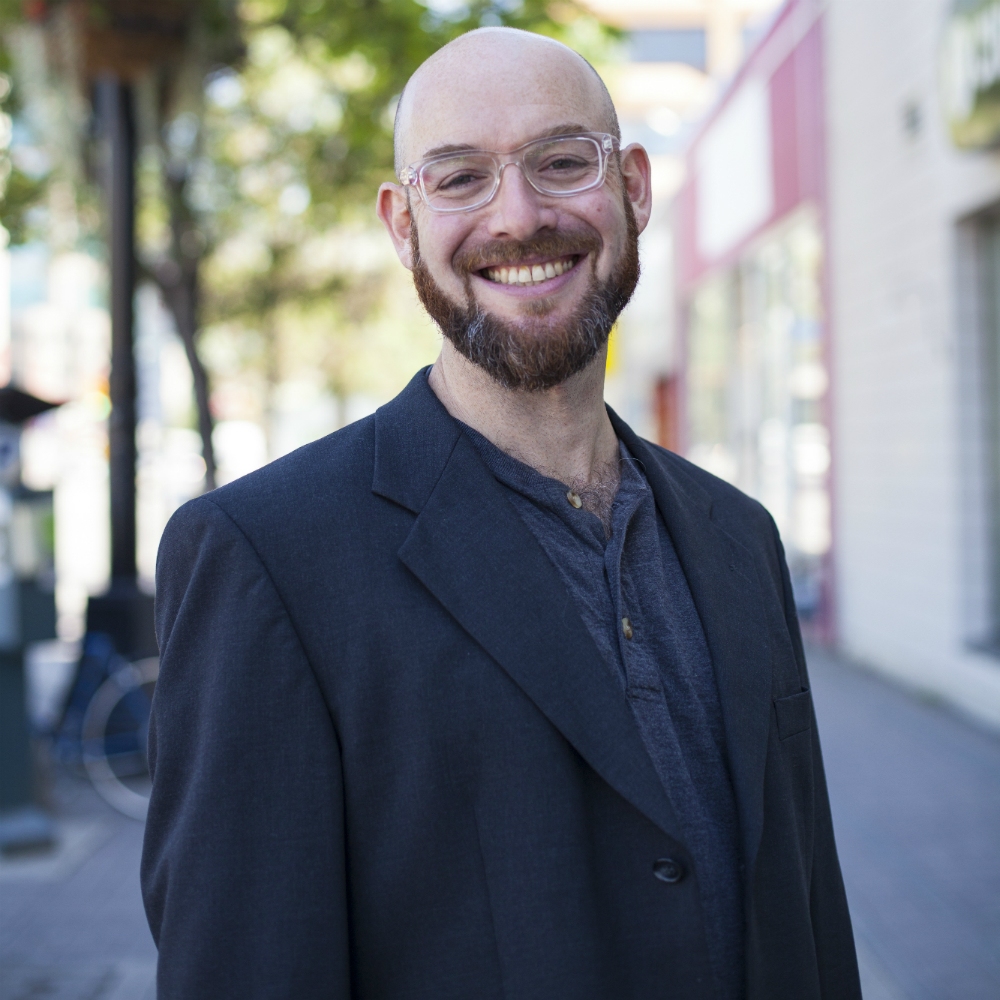News and Releases

News Releases
MSC professor awarded grant to continue community meth response training
Tuesday, January 7, 2020 @ 3:17 PM | News Releases

Dr. Jobb Arnold, Assistant Professor of Conflict Resolution Studies at Canadian Mennonite University's Menno Simons College (MSC), has received a grant of $5,000 from the City of Winnipeg's inaugural Community Safety and Crime Prevention program.
Winnipeg is experiencing a methamphetamine (meth) crisis of proportions larger than the city has ever seen, and Arnold is tackling the issue head-on. He developed a community meth response training resource and ran the first sessions with it over the fall of 2019 for organizations like the Addictions Foundation of Manitoba and some of the city's crisis social workers.
The funding from this grant will enable him to continue to deliver training to different communities in Winnipeg, and especially host more workshops to teach people how to train others in these models.
"Meth is not just an inner-city issue," says Arnold. "It's prevalent in a lot of different communities, and so part of this training is meant to recognize addictions and how these things look differently in different communities."
He has developed this particular training to be skills-based, adapting what is already taught in Conflict Resolution Studies (CRS) at MSC into models of training that will prepare people to understand and manage conflict connected to the meth crisis in Winnipeg. "We're trying to promote community health and flourishing," he says.
Arnold began to think about developing training when his CRS students started asking, how do we do peacebuilding in the midst of a meth crisis? So in July 2019, he brought in a guest lecturer from Seattle and organized panels of speakers to put on a series of public events, titled, "Meth in Winnipeg: A Community Response," hosted by MSC together with several other organizations.
His work has been based in the inner-city for the last five years, so he was able to build on connections and relationships he had already made. He's been forming the training for a while, working with community folks to see what they need and what is and isn't working.
"I consider this to be more of a peacebuilding model in the sense that it's looking at things holistically, understanding that meth is additive. It doesn't exist in a bubble separate from poverty, housing, lateral violence, or colonialism," he says.
The training is a two-day program that Arnold has set up in three sections, based on a trauma model that he used when working with genocide survivors in Rwanda. The participants first build understanding about the pharmacological definition of meth and the outcomes that are caused by its use. Then they develop meaning by learning about the pain, trauma, and social factors that are often reasons behind drug usage. "Particularly meth has been used a lot amongst homeless populations to stay awake, to stay safe," says Arnold. Lastly, they focus on manageability, giving people specific tools and strategies to use if they encounter people under the influence of drugs or meth.
About CMU
A Christian university in the Anabaptist tradition, CMU's Shaftesbury campus offers undergraduate degrees in arts, business, humanities, music, sciences, and social sciences, and graduate degrees in Theology and Ministry, Business Administration, Peacebuilding and Collaborative Development. CMU has 1,600 students, including those enrolled in degree programs at its Shaftesbury Campus and Menno Simons College Campus. CMU is a member of Universities Canada.
For information about CMU, visit cmu.ca.
Kevin Kilbrei, Director of Communications & Marketing
kkilbrei@cmu.ca; 204.487.3300 ext. 621
Canadian Mennonite University
500 Shaftesbury Blvd., Winnipeg, MB R3P 2N2
KEYWORDS: grant, Jobb Arnold, news, faculty, Community Safety and Crime Prevention, MSC, Menno Simons College

 Print This Article
Print This Article